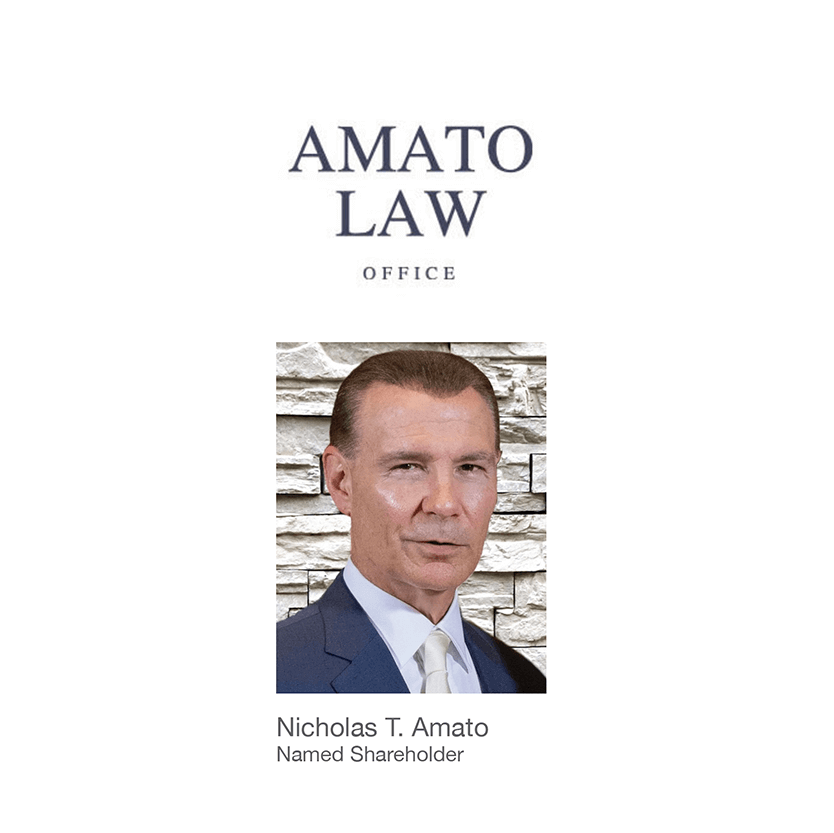Get A Free Legal Consultation
- We fight to maximize your results
- No out-of-pocket costs
- Over $10.6 billion recovered for families



On February 3, Norfolk Southern trains in East Palestine, Ohio derailed due to mechanical issues, spilling at least 10 freight cars of dangerous and flammable chemicals. Thousands may be at risk of exposure.
In total, 149 Norfolk Southern Railway train cars were traveling from Illinois to Pennsylvania on February 3, when around 50 of these cars derailed in East Palestine, Ohio. At least 10 of the derailed cars were transporting highly hazardous chemicals.
The East Palestine community had to be temporarily evacuated following the derailment to enable railroad crews to burn the flammable chemicals and allegedly prevent a larger explosion from taking place.
After only five days, the evacuation notice was lifted and residents were allowed back into the area. The full extent of the spill and the damages it could continue to cause is still being determined at this time, but the effects are already being felt miles away.
Over 3,500 fish were found dead nearly 8 miles downstream by February 9, less than a week after the derailment. It’s possible the contamination will continue to spread and potentially affect drinking water supplies.

The attorneys at Simmons Hanly Conroy, Amato Law, and Shapero Roloff are working together to represent municipalities, businesses and individuals impacted by the Norfolk Southern derailment incident.
In the aftermath of the derailment, individuals and local communities are facing complex legal issues. The derailment of a train carrying toxic chemicals can give rise to various types of lawsuits, including personal injury claims, wrongful death claims, property damage claims, and business interruption claims.
Our compassionate approach and combined experience make our firms uniquely qualified to give those impacted the legal care they deserve. Shapero Roloff has a state-wide reputation for providing superior legal work in matters involving railroad injury and negligence.
Simmons Hanly Conroy has the national reach and resources to take on large, serious cases against powerful companies. The firm has helped thousands of families and individuals hurt by toxic chemical exposures and specializes in complex litigation matters. The firm is currently leading the national litigation against the pharmaceutical industry for its role in causing the opioid epidemic ravaging communities all over the country.
Together, our firms have extensive experience helping our clients challenge larger companies who have created dangerous, hazardous environments by releasing toxic chemicals carelessly. These kinds of actions can have long-term implications on the safety and well-being of individuals and larger communities, which is why we are committed to providing justice to those harmed.
We stand on a strong foundation of values and an extensive track record of success. Our clients know that we are resolute and unwavering in fighting on their behalf.
In the aftermath of the derailment, individuals and local communities are facing complex legal issues. The derailment of a train carrying toxic chemicals can give rise to various types of lawsuits, including personal injury claims, wrongful death claims, property damage claims, and business interruption claims.
Generally speaking, the following parties may have legal claims arising from the train derailment in
At this time, we know the derailed Norfolk Southern trains were carrying vinyl chloride, butyl acrylate, ethylhexyl acrylate, ethylene glycol monobutyl ether, isobutylene and more. Vinyl chloride is a colorless but hazardous gas used to produce polyvinyl chloride (PVC) plastic.
Exposure to vinyl chloride can cause a range of potentially serious health effects, including:
However, when vinyl chloride burns, it becomes hydrogen chloride and phosgene. Phosgene is highly poisonous and was used during World War I as a choking agent, while hydrogen chloride is irritating and corrosive to any tissue with which it comes into contact.
These chemicals may have become airborne and been carried into neighboring areas, as well as being absorbed into the rain clouds and nearby waterways. In addition to causing physical symptoms, these chemicals may cause property damage when they come in contact with buildings, vehicles and equipment.
Tragically, the contamination may only continue to spread and put more families at risk. On February 9, state officials estimated that the derailment caused the deaths of 3,500 fish about 7.5 miles downstream of the town.
According to the EPA, chemicals from the incident have already been found in samples from:
The Ohio River supplies drinking water to over 5 million people, and over 30 million people live in the Ohio River Basin. As of February 14, these waterways are still believed to be contaminated.
“There is a lot of fear and there is a lot of concern [by affected families]. What about their kids? What about the water? What about their livelihoods, their homes,” Jayne explained. “And there is always that question of how are we going to hold Norfolk Southern accountable.”
Residents and business owners in the area have turned to filing lawsuits for the train derailment in Ohio and their potential injuries from exposure to toxic chemicals.
Alisyn Camerota:
With me in the studio now is CNN chief climate correspondent, Bill Weir, and Jayne Conroy. She's an attorney who is now representing hundreds of residents in that community in a class action lawsuit against Norfolk Southern Railroad. Great to have you both. Jayne, let me start with you.
Jayne Conroy:
Sure.
Alisyn Camerota:
So you're representing hundreds of people now in this community. Do they share similar stories? What do they want out of this class action lawsuit?
Jayne Conroy:
I don't even know that they're thinking so much about the class action lawsuit right now, but I think they're thinking about the things that Nate said. What about their kids? What about the water? What's happening to their lives? What about their livelihoods, their homes that they own?
Alisyn Camerota:
Where are they living?
Jayne Conroy:
Everywhere. Hotels, Airbnbs, family members that are putting them up places. And some people we know are back in their homes because they have livestock or crops that they have to deal with. So it's a mixed bag. But there's a lot of fear and there's a lot of concern. And there's always that question of, how are we going to hold Norfolk Southern accountable? But that's not helping right now. That's not helping Nate today.
Alisyn Camerota:
Is there anything that can help him today?
Jayne Conroy:
Maybe. I think there could be some efforts that could be taken to try to help assist with housing and those types of things. But the railroad didn't even show up at the meeting, so it's a little hard to have those conversations.
Alisyn Camerota:
What do you think about that? So there was a town hall meeting tonight. The residents were going to be able to voice their concerns. And then Norfolk Southern said that their employees were getting too many threats.
Jayne Conroy:
I don't know anything about the threats. But I don't think it's slowing down trains running on tracks near East Palestine. So Norfolk Southern's worried about some things, but not its business.
Alisyn Camerota:
Bill, let me play for you a little bit more sound from this town hall tonight and the frustration of the residents there.
Speaker 3:
Everybody satisfied with my answer?
Crowd:
No.
Speaker 5:
Why are people getting sick if there's nothing in the air or in the water? Why [inaudible 00:02:18].
Speaker 6:
Stop taking the railroad's money.
Speaker 7:
If I call the number on your card, sir, with all due respect, you still won't be able to answer the question I just asked for all of us.
Speaker 8:
I have concerns with dead fish, the smell of the water. I'm not a scientist but I do have common sense.
Speaker 9:
Where's Norfolk Southern?
Alisyn Camerota0:
Why can't we get answers from them?
Alisyn Camerota:
Well, I mean, you hear it there. Why are people getting sick if there's nothing in the air or water?
Bill Weir:
If you think those folks are mad now, wait until they have the time to actually look into the history of Norfolk Southern and really the railroad industry in the last decade in this country. That train that derailed was almost two miles long as a result of an era right now of downsizing staff, laying off 30% of workers and making the trains 30% longer. And they're operated with brakes that were first invented in the Civil War, 1867, air brakes that break from the front to the back so it can take two minutes before the back car knows to slow down. And so it becomes this slinky from hell that slams into the cars that have already stopped.
Of course, we have a better mousetrap in the 21st century. It's called electronic controlled pneumatic brakes. They basically stop every car at once, immediately, much more efficient. And in 2014, the Obama administration wanted to make them mandatory on cars that had explosives in it, after a bunch of derailments and one just like this in New Jersey that let off this gas. And the industry and Norfolk Southern fought it, even though they had put some on their trains and were screaming about the benefits. They said, if we put these on their trains, those trains should be exempt from all other inspections because they're so safe. But they thought it was too expensive to invest in that.
Alisyn Camerota:
Do you know if these folks have gotten a response from Norfolk Southern yet? Have they replied?
Bill Weir:
I haven't heard. I haven't heard anything.
Alisyn Camerota:
Anything Jayne?
Jayne Conroy:
No. I haven't heard anything.
Alisyn Camerota:
Norfolk Southern, I read, has set up I think, a $1 million fund for the community. How will that go over, Jayne? Will that be enough to help the folks like Nate that we just heard from?
Jayne Conroy:
No, it's probably not going to pay for all of the properties and the livelihoods and medical monitoring for all of these individuals. What I do hope is that they're not expecting that even if they do give that small assistant to a resident, that they don't make them sign away all their rights to future recovery. That's always a worry that we have. So cash like that could really help, but not if it has strings attached.
Alisyn Camerota:
And you were telling me also that just the amount of response that had to show up in terms of the fire department, the fire trucks, that alone could eat up so much of that $1 million.
Jayne Conroy:
I was stunned to learn. I was talking to city officials over the last few days and 90 fire departments were needed to come on scene. Not a big surprise, with the size of this fire, to work on the fire for days and days. We've now learned that all of that fire equipment as well as the firefighters' radios and the police department's radios, they need to be replaced because of the contaminants that were on the scene and the fire trucks and the other type of equipment, if they can be salvaged, need to be cleaned at enormous expense. So you take a town like East Palestine or any of the other locations with fire departments, first of all, their equipment isn't even available if something were to catch on fire tomorrow.
Alisyn Camerota:
Oh my gosh.
Jayne Conroy:
So the problem, the more we learn, the more it just keeps growing and growing.
Alisyn Camerota:
And Bill, this train of hazardous materials that the governor said he didn't know contained hazardous materials, how many of these trains are chugging through all of our neighborhoods at any given moment?
Bill Weir:
Lots of them all the time, everywhere. You can reroute a truck full of hazardous material around a population center, but trains are limited on their track choices. And now the economics of it, it's all about efficiency. They fought the lobbying group's designation, that this particular kind of train carrying this is extra hazardous, extra explosive. They willed it down the number of train cars you have to have carrying this in order to classify because that would slow things down. And this is money. They're making money. This company made 13 billion, just shy of $13 billion in profits last year. And what's interesting, in 2004, Norfolk Southern train crash in South Carolina spilled chlorine, killed nine people, but they paid a $4 million fine because they had violated the Clean Water Act and killed a bunch of fish. I don't know, there might have been a class action saw where they had to pay out to the victims of those families.
But if somebody's doing a train wreck cost benefit analysis between paying to put the brakes on the train, there's about a thousand derailments a year. I looked at the stats. 150 of those, 15% are due to bad tracks. They're either buckled, they can't take the weight or they've shifted, and the industry is laying off all of these people that would be inspecting those tracks for the profit. And to be fair, the railroad union has gotten screwed from both parties. Joe Biden and the Democrats kept them from striking to get paid healthcare recently to stop a national rail shortage. They were afraid of inflation.
Alisyn Camerota:
It's not going away.
Bill Weir:
This is not going away. And I don't know what the changes are going to be. It feels like, you can replace the word trains for guns in some ways and say the same special interests that are unifying to stop changes and common sense safety is existing here.
Alisyn Camerota:
Yeah. Well this certainly isn't going away in East Palestine. Jane, Bill, thank you very much for all the information. We will follow it every single day.
Jayne Conroy:
Please do. That's what's necessary.
Willie Geist:
The National Transportation Safety Board says the Ohio train, derailment and toxic chemical spill could have been prevented. According to a preliminary report, the crew on board the Norfolk Southern train received an alert about an overheated wheel bearing on that wheel moments before dozens of cars left the tracks in East Palestine. At that point, the wheel bearing was 235 degrees above the ambient temperature. Investigators say the train had passed two other sensors and no alarms went off.
Meanwhile, residents of East Palestine say they still are experiencing headaches and nausea and worry about the long-term effects. State officials say the derailment may have killed now more than 43,000 fish, amphibians and other aquatic animals in nearby streams. The Department of Agriculture insists it has not seen anything of concern in the area of livestock, despite some reports from residents.
Joining us now from East Palestine, Ohio is attorney, Jayne Conroy, part of the legal team spearheading class action litigation against Norfolk Southern Railroad, also conducting independent, comprehensive air, water, surface, and soil testing. Jayne, thanks for being with us this morning. We've been saying now, ever since we've heard this public confidence from elected officials from the EPA that the water is fine, that the air is fine, that everyone should return home, that we'd be skeptical based on other disasters we've seen in the past. So tell us about this class action suit that you have filed on behalf of some of the residents there in Ohio.
Jayne Conroy:
Sure. Good morning. Thank you. We filed immediately because we know that first of all, it was unclear what chemicals were even on that train, and we were concerned that the correct information was not getting to the residents of East Palestine. And that was first and foremost. You can see behind me all the work going on to try to figure out what chemicals are in the water and in the air and in the soil. But secondarily, we know that there's a reason why this accident happened. And so part of the reason for our lawsuit on behalf of the residents is to figure out why this happened so it doesn't happen again.
Willie Geist:
And what is the specific negligence you are alleging on behalf of Norfolk Southern?
Jayne Conroy:
Well, it's pretty basic. It's putting profits over safety. Were there enough hot box detectors that you were talking about on those tracks to determine whether that train was going to derail? Is there enough of a crew? Are the trains too long to stop in time? Are they too dangerous going through towns like this when you don't have the right type of detectors on board the train? So all sorts of questions like that. A lawsuit like this sheds light on that information because look, even today, the trains are coming through new tracks, right over the contaminated soil through East Palestine. It's the same hot boxes that are on those tracks. So we need to shed light on what's happening.
Speaker 3:
So Jayne, let's stick with this topic for a bit. I mean, the idea of infrastructure in the United States, apparently they're way behind on improving rail beds all over the country, not just in Ohio, I would imagine, but 149 railroad cars. I have never heard of that number of railroad cars being pulled through a village, a town, a city, anywhere. Is that going to be part of the negligence lawsuit?
Jayne Conroy:
Absolutely. We're going to look at that because when you add a lot of cars to a train like that, it takes a really long time to stop them. Not only that, with only two crew members and a trainee that was on this train, it takes forever to even walk the line to inspect those cars to see if there's a problem. And it's happening everywhere in the United States. There's nothing unusual about... Norfolk Southern does it. They're everywhere with trains that are that long. We have trains that are that long coming through East Palestine today.
Willie Geist:
All right, we will be keeping a close eye on this case, Attorney Jayne Conroy. Thank you. As of now, the company, Norfolk Southern, has not commented on this litigation.

Simmons Hanly Conroy is one of the nation’s leading plaintiff law firms, with nearly 80 attorneys and recoveries of more than $9.8 billion in verdicts and settlements. Founded in 1999, Simmons Hanly Conroy has been a leader in product liability litigation on a national level and has a long track record of handling complex toxic exposure cases. The firm is the largest filer of mesothelioma asbestos cases in the country, securing billions of dollars for its clients and the largest trial verdicts in virtually every legal venue.
Headquartered in Alton, Illinois, the firm has offices in New York, California and Missouri. With nearly 250 employees throughout the country, the firm’s mass tort, product liability and complex litigation departments routinely are appointed by courts all over the country to lead the prosecution of complicated and far-ranging product liability litigation involving exposure to dangerous products, drugs and medical devices. Our significant resources allow us to take on large defendants.
Most recently, Simmons Hanly Conroy has been on the forefront of the nationwide litigation on behalf of cities and counties to hold the pharmaceutical industry (manufacturers, distributors, and pharmacies) responsible for the opioid crisis that has impacted communities across the nation. Additionally, Simmons Hanly Conroy was appointed by the court to serve as co-lead counsel in the sprawling federal multi-district opioid litigation (MDL) pending in the Northern District of Ohio, which has been described by some as the most complex legal matter in history.
Simmons Hanly Conroy filed one of the earliest of these lawsuits on behalf of Suffolk County, New York, and represents that county and 20 others, as well as the City of New York, in the New York state-coordinated opioid litigation. SHC also represents hundreds of cities and counties in numerous other states.
In December 2021, Named Partner Jayne Conroy, together with a team of firm partners, co-counsel representing Nassau County and attorneys from the New York Attorney General’s office secured a landmark liability jury verdict against Teva Pharmaceuticals, one of the largest manufacturers of opioids in the world. The verdict was the first in the nation against an opioid manufacturer and came after a 7-month trial, which is believed to be the longest jury trial in New York history.
Additionally, that trial drove more than $1.7 billion in settlements for New York cities and counties with many of the other defendants in the case, including Johnson & Johnson, Allergan, McKesson Corporation, Cardinal Health Inc., AmerisourceBergen Drug Corporation and Endo Pharmaceuticals.

Attorney Nicholas T. Amato has practiced law for over 33 years with the main part of his practice devoted to the preparation and trial of medical malpractice, product liability, automobile negligence, trucking death accidents and other areas of personal injury litigation. He has successfully won jury verdicts and/or settled his client’s claims in amounts ranging into the millions of dollars. Nick also has tried criminal cases, like DUI’s and received numerous jury verdict acquittals. In 2021, the Ohio Supreme Court appointed Nick to serve as a member of the Board of Professional Conduct. Since 2014, Nick has served as an acting judge for the East Liverpool Municipal Court. Other areas of Nick’s practice include estate administration through Probate Court, Wills, Living Wills, Health Care Powers of Attorney, Financial Powers of Attorney, and Real Estate Transfers, Deeds.
Bar Admissions
Education
In 2021, the Ohio Supreme Court appointed Nick to serve as a member of the Board of Professional Conduct.
Since 2016, Nick has served as an acting judge for the East Liverpool Municipal Court.
Since 2014, Nick has served on the Board of the Columbiana County Port Authority which facilitates cargo movement on the Ohio River and promotes economic development in Columbiana County.

About Shapero Roloff
Ohio-based firm Shapero Roloff Co., L.P.A. was created in 2002 by Neal E. Shapero and David Roloff, after both enjoyed successful careers as partners of the prestigious law firm Gaines & Stern Co., L.P.A.
Gaines & Stern served its clients for over 50 years after being formed by such notable individuals as former U.S. Senator Howard Metzenbaum and former Federal Judge Robert Krupansky. Shapero Roloff now carries on the ideals and principles instilled by Senator Metzenbaum and Judge Krupansky over half a century ago.
Shapero Roloff is dedicated to providing the highest caliber of legal services in a professional and ethical manner to individuals and their families in the areas of personal injury, medical malpractice, nursing home abuse and neglect, wrongful death, railroad employment injuries (FELA), product liability, civil rights and employment. It has a proud history of representing labor unions pertaining to unfair labor practices, arbitrations, grievance handling, negotiations and breach of contract litigation.
Shapero Roloff serves as Designated Legal Counsel and provides experienced representation and free consultation to all railroad employees. For over 25 years, its lawyers have handled railroad cases throughout the Midwest and Northeast quarter of the United States against railroad companies such as Norfolk Southern, CSX, PATH, Conrail, Norfolk and Western, Wheeling & Lake Erie, and Burlington Northern.
The firm is Designated Legal Counsel for SMART-TD,
the Brotherhood of Railroad Signalmen and the Brotherhood of Locomotive Engineers and Trainmen (BLET) through its membership in the Academy of Rail Labor Attorneys (ARLA).
The firm has a statewide reputation for providing
superior legal work on sophisticated and complex matters. This is evidenced by the number of attorneys throughout Ohio and surrounding states who regularly refer challenging cases to our firm that may eventually need to be tried in court.
All of the firm’s attorneys and staff are passionate about ensuring that their clients receive the highest quality legal advice and services. In providing the best possible representation, Shapero Roloff strongly believes in educating their clients about the legal process. That education starts at the initial client meeting and continues throughout the representation, making for a successful lawyer-client relationship.